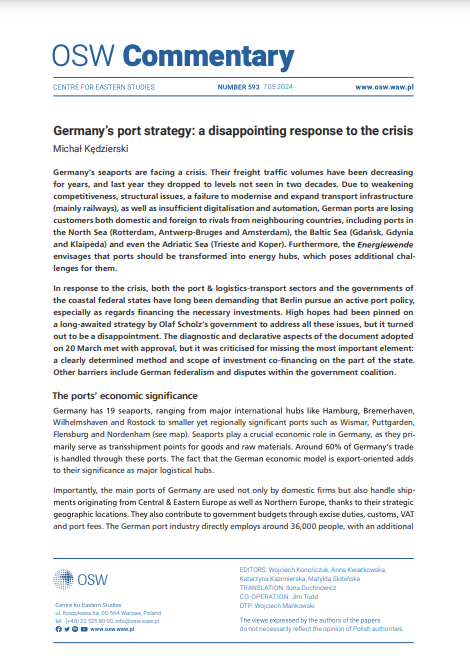Germany’s port strategy: a disappointing response to the crisis
Germany’s port strategy: a disappointing response to the crisis
Author(s): Michał Kędzierski
Subject(s): Politics, National Economy, Energy and Environmental Studies, Public Law
Published by: OSW Ośrodek Studiów Wschodnich im. Marka Karpia
Keywords: Germany; Energiewende
Summary/Abstract: Germany’s seaports are facing a crisis. Their freight traffic volumes have been decreasing for years, and last year they dropped to levels not seen in two decades. Due to weakening competitiveness, structural issues, a failure to modernise and expand transport infrastructure (mainly railways), as well as insufficient digitalisation and automation, German ports are losing customers both domestic and foreign to rivals from neighbouring countries, including ports in the North Sea (Rotterdam, Antwerp-Bruges and Amsterdam), the Baltic Sea (Gdańsk, Gdynia and Klaipėda) and even the Adriatic Sea (Trieste and Koper). Furthermore, the Energiewende envisages that ports should be transformed into energy hubs, which poses additional challenges for them.
Series: OSW Commentary
- Page Count: 11
- Publication Year: 2024
- Language: English
- Content File-PDF

